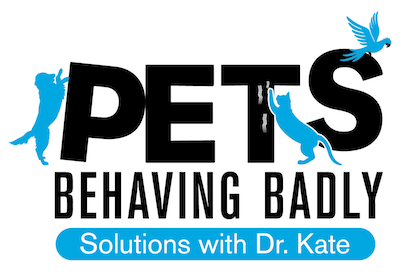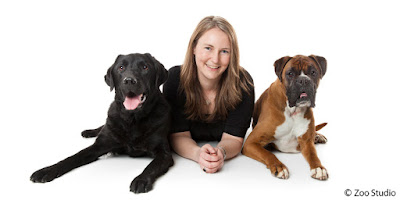 |
| Golden Oldie (Source: chriswsn on Flickr) |
Pets are considered family members and significant attachment figures, especially in Western culture. Characteristics of our relationships with pets mirror those of our relationships with people and include unconditional love, acceptance and distress at separation (Brown & Symons, 2016). Not surprisingly, the loss of a beloved pet, especially an unexpected loss, can be profound with complicated grief, depression and trauma commonly experienced.
Symptoms of grief can include loss of sleep and appetite, decreased social activity, difficulty concentrating, loss of motivation, stress, depression, anxiety, worry, anger, loneliness, guilt, sadness and feelings of emptiness. It has even been suggested that the passing of a pet can evoke the same level of grief as the passing of a spouse or family member and that people move through the same stages of grieving for pets as they would people. Perhaps not surprisingly, people who lose a pet suddenly (e.g. car accident) tend to experience more severe grief than those whose dog dies from an illness (Brown & Symons, 2016; Kimora et al., 2014).
Research has found that our attachment style (the way we form social relationships) significantly influences the way we deal with the loss of a companion. Attachment theory addresses how infants and children form social relationships and, depending on the individuals experiences, can be secure or insecure. It is proposed that these early relationships with caregivers influence future social relationships throughout life.
Two dimensions, anxiety (i.e. excessive worry, distrust and concern a partner will not be available when needed) and avoidance (i.e. discomfort with closeness, depending on others and emotional intimacy), have been described in adult attachment in romantic relationships (Brown & Symons, 2016). These same dimensions have been found by Zilcha-Mano et al., (2012), who developed the Pet Attachment Questionnaire, in our relationships with pets. People who are anxiously attached to their pet may be predisposed to trauma and complicated grief if they tend to fixate and worry about their relationships. Furthermore, bereaved pet owners may suffer from more severe grief symptoms if they've experienced a number of stressful events (e.g. changes in family structure, illness, work issues) in quick succession (Kimora et al., 2014).
What can you do to ease the pain?
Everyone deals with grief a little differently. Acknowledging that you've experienced a significant loss and taking time for self care is important. Some people help heal the wound by getting another dog and this has been found to have a positive impact on emotional adjustment and coping with a loss (Brown & Symons, 2016). Whereas others may prefer to take time to grieve and recover from their loss before they are ready for a new companion.
I asked my very good friend and pet bereavement specialist, Dr Vanessa Rohlf, for her top three tips for coping with the death of a pet. Here they are:
- Accept your feelings for what they are and accept them with kindness and without judgment.
- Grief can comes in waves. It can be triggered by reminders of things (e.g., collars, pet beds), places (e.g., veterinary clinic, a favourite place your pet used to lie), people and sometimes there is no trigger. Ride with the waves. They provide us with an opportunity to process our loss.
- Seek support from friends and family. Talk to your friends and family. Support from significant people in your life can be so important to the healing process.
When we lost our Boxer Archie in 2015 and our Labrador Joseph just this week, I certainly found that spending time with family and friends helped to ease the pain, as did talking about our memories of them, looking at photos and watching videos. Archie had lymphoma and we knew that his time was limited and Joseph was 12 and had been battling health issues for a while. This was a blessing in a way because we were able to make the most of the time we had left with them. We were also able to plan how we would say goodbye.
We had both Archie and Joseph euthanised at home, where they were relaxed and comfortable, and both were cremated afterwards. As hard as it was to say goodbye to our boys, choosing the way we did it helped us cope better with their loss. There are some really amazing compassionate people and services available to assist and they make saying goodbye that little bit more bearable. Dr Emma from My Best Friend - Home euthanasia service and Eden Hills Pet Cremation both offer beautiful services.
 |
| I miss those beautiful big Boxer paws |
 |
| Joseph and baby Lenny (soon after we adopted him) |
Having Lenny, our adopted Border Collie, also helps ease the grief. So far he seems to be coping well without Joseph. I'm not seeing any signs of stress or anxiety or concern for where he's gone. However it's still early days and we are conscious to spend as much time with him as we possibly can. We have been a two dog household since moving out of home and having our own dogs. Although we'd love nothing more than to welcome another dog into our home, with two toddlers, the timing just isn't right. For now we looking forward to watching Lenny and our boys grow together.
"The pain of their loss is the price we pay for the joy they bring and the pleasure of their company."
In my own experience with pet loss and grief I've found that acknowledging that life is short for our canine companions helps me to be prepared for the inevitable. When we're not in denial about this we can truly be with our dogs in the moment and soak up the precious time we share with them. Having experienced both sudden and expected losses, I did find that the expected losses were easier to cope with. That said, loss is loss and it's hard. I always say that the pain of their loss is the price we pay for the joy they bring and the pleasure of their company.
Although the grief associated with the loss of a beloved companion does ease with time, if you find yourself struggling to cope it's important you seek help. Talking to family and friends is a good start and speaking with a counsellor who specialises in pet bereavement, such as Dr Vanessa Rohlf, is even better.
Dr Kate x
References:
Brown, O. K., & Symons, D. K.
(2016). “My pet has passed”: Relations of adult attachment styles and current
feelings of grief and trauma after the event. Death studies, 40(4), 247-255.
Kimura, Y., Kawabata, H., &
Maezawa, M. (2014). Frequency of Neurotic Symptoms Shortly after the Death of a
Pet. The
Journal of Veterinary Medical Science, 76(4), 499.
Zilcha-Mano, S., Mikulincer, M., & Shaver, P. R. (2012).
Pets as safe havens and secure bases: The moderating role of pet attachment
orientations. Journal of Research in Personality, 46(5), 571-580.








